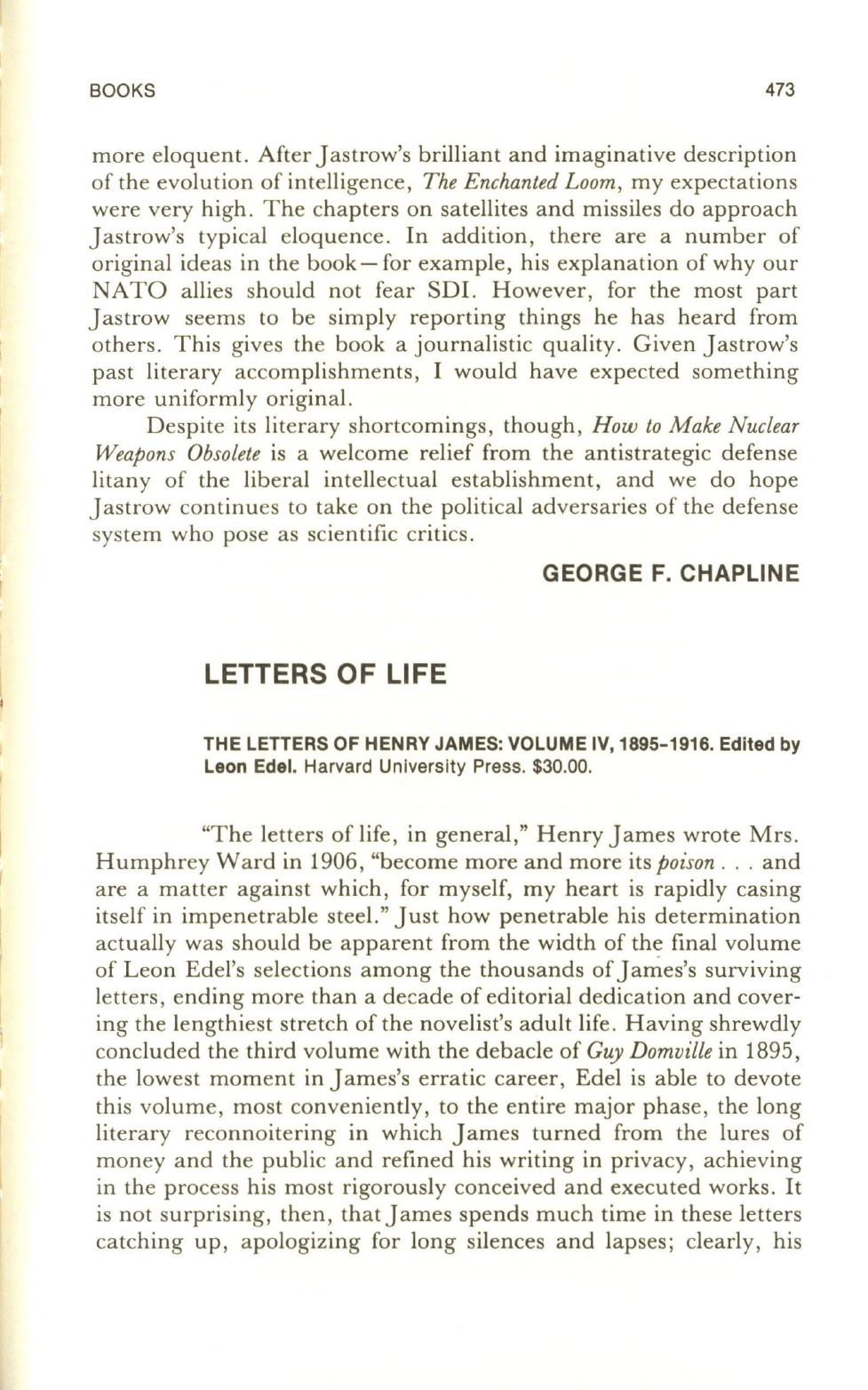
BOOKS
473
more eloquent. After J as trow's brilliant and imaginative description
of the evolution of intelligence,
The Enchanted Loom,
my expectations
were very high. The chapters on satellites and missiles do approach
J astrow's typical eloquence .
In
addition, there are a number of
original ideas in the book - for exampie, his explanation of why our
NATO allies should not fear SDI. However, for the most part
J astrow seems to be simply reporting things he has heard from
others. This gives the book a journalistic quality. Given J as trow's
past literary accomplishments, I would have expected something
more uniformly original.
Despite its literary shortcomings, though,
How to Make Nuclear
Weapons Obsolete
is a welcome relief from the antistrategic defense
litany of the liberal intellectual establishment, and we do hope
J astrow continues to take on the political adversaries of the defense
system who pose as scientific critics.
GEORGE F. CHAPLINE
LETTERS OF LIFE
THE LETTERS OF HENRY JAMES: VOLUME IV, 1895-1916. Edited
by
Leon Edel.
Harvard University Press. $30.00.
"The letters of life, in general," Henry J ames wrote Mrs.
Humphrey Ward in 1906, "become more and more its
poison .
..
and
are a matter against which, for myself, my heart is rapidly casing
itself in impenetrable steel." Just how penetrable his determination
actually was should be apparent from the width of the final volume
of Leon Edel's selections among the thousands of James's surviving
letters, ending more than a decade of editorial dedication and cover–
ing the lengthiest stretch of the novelist's adult life . Having shrewdly
concluded the third volume with the debacle of
Guy Domville
in 1895,
the lowest moment in James's erratic career, Edel is able to devote
this volume, most conveniently, to the entire major phase, the long
literary reconnoitering in which James turned from the lures of
money and the public and refined his writing in privacy, achieving
in the process his most rigorously conceived and executed works.
It
is not surprising, then, that James spends much time in these letters
catching up, apologizing for long silences and lapses; clearly, his


